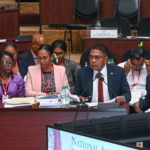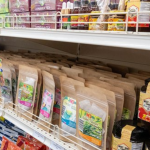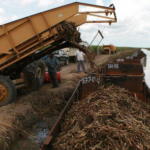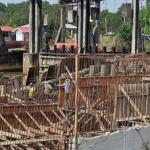Over the past four years, the Government of Guyana has moved towards establishing policies to
facilitate sustainable livestock practices through the implementation of frameworks to support
responsible land use and minimize environmental impact.
This is according to Agriculture Minister, Hon. Zulfikar Mustapha.

While delivering remarks at the Food and Agriculture Organization of the United Nations (FAO)
Regional Conference for Sustainable Livestock Transformation in Latin America and the
Caribbean, Minister Mustapha said that the government believes that a regional approach to
sustainable livestock transformation is essential.
He also said that Guyana’s livestock sector is not only a crucial part of the country’s economy
but also a vital component of our cultural heritage and community well-being.
Minister Mustapha also said Guyana, like many other countries in the region, faces numerous
challenges in the livestock sector. However, he explained that the government has been
implementing a range of initiatives aimed at sustainably transforming the sector.
“The livestock sector in Guyana is not only a crucial part of our economy, supporting rural
livelihoods and contributing significantly to food security, but also a vital component of our
cultural heritage and community well-being. Like many other countries in the region, Guyana
faces numerous challenges in the livestock sector, including the impact of climate change and
market volatility. These challenges require robust and forward-thinking policy initiatives, which
we have begun implementing through a range of initiatives aimed at transforming our livestock
sector sustainably such as the development and implementation of a strong policy framework
critical for guiding sustainable development in the livestock sector,” he explained.
Minister Mustapha further noted that, in addition to supporting farmers to sustainably transform
the sector, the government is also developing guidelines to balance livestock production with
environmental sustainability, in alignment with our Low Carbon Development Strategy (LCDS).
“Moving forward, our aim is to develop guidelines that balance livestock production with
environmental sustainability, in alignment with our Low Carbon Development Strategy (LCDS).
Through collaboration with regional and international partners, we seek to shape policies that
will foster sustainable practices and contribute to broader climate and sustainability goals. SO
far, the government has provided support for farmers and stakeholders by facilitating low to
minimal fees for drainage and irrigation services as well as land rentals; offered budgetary
support for the adequate provision and maintenance of critical infrastructure such as drainage
and irrigation systems, and farm-to-market roads; agricultural machinery are VAT free; and
spearheaded initiatives to reduce the cost of production by making fertilisers, agrochemicals,
pesticides and other key inputs used in the poultry industry VAT free,” Minister Mustapha said.
Moreover, as a solution to create a more sustainable pathway for animal healthcare, Minister
Mustapha said Guyana will commence the production of vaccines for all livestock through a
Public-Private Partnership (PPP). He also said collaboration with international organizations has
helped with strengthening Guyana’s disease surveillance and response capacity.
“In 2023, we purchased $29 million worth of vaccines to support our farmers. Now, we will
build a facility in Guyana to produce all the vaccines needed for Guyana and the CARICOM
region via a public-private partnership. Additionally, our partnership with international
organizations has strengthened our capacity for disease surveillance and response, enabling us to
quickly address emerging threats to livestock health. By fostering strong partnerships and
leveraging our collective strengths, we can address the shared challenges facing the livestock
sector and build a future that benefits our farmers, our communities, and our environment,” he
noted.
The two-day conference was held in Punta del Este, Uruguay on November 5 th and 6 th as a
follow-up to recommendations made during FAO’s Global Conference on Sustainable Livestock
Transformation which was held in Rome, Italy in September 2023.
The main objective of the conference was to provide a neutral space for countries and
stakeholders to share successful experiences, actions and initiatives that contribute to the
sustainable transformation of livestock farming in Latin America and the Caribbean.




